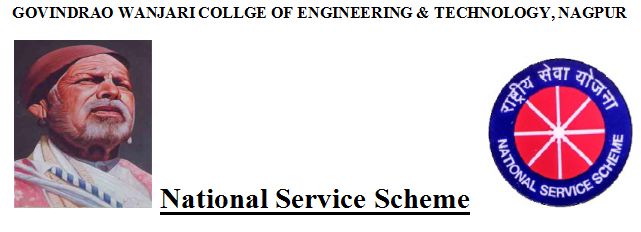
INTRODUCTION
The National Service Scheme, popularly known as the NSS, is a major activity intended to engage the volunteers of colleges and universities in community services on a voluntary basis. National Service Scheme is one of the schemes in the educational programmes which develop the person fully responsible citizen. Volunteers are involved in the scheme gather under one roof with the same goals and objective. However the experience revealed that this scheme also motivates the students for their personality development. The NSS experience sensitizes the teacher and the students to social reality. The young people are the most effective agents for the social change they play an important role in the development of the country. The Scheme is implemented through variety of activities that require the student understands of the community and their involvement in the development.
OBJECTIVE
The objective of the NSS is that student enables to understand the needs of the community and the nature of the social consciousness. The volunteers are provided the opportunities to develop their leadership qualities, skills, and awareness about national integration. NSS is committed for the self development of the students, people’s participation in it and the collective organization collaborate with the scheme. NSS is also calls for a collective, interactive and the evolutionary approach in regard to gender issues & social justice. NSS is given opportunities to the students for the social work in the adopted villages through the community service and promote them capacity building in the individuals, groups & the community in the adopted villages or rural areas.
The main objectives of National Service Scheme (NSS) are
- To understand the community in which they work
- To understand themselves in relation to their community
- To identify the needs and problems of the community and involve them in problem-solving
- To develop among themselves a sense of social and civic responsibility
- To utilize their knowledge in finding practical solutions to individual and community problems
- To develop competence required for group-living and sharing of responsibilities
- To gain skills in mobilizing community participation
- To acquire leadership qualities and democratic attitudes
- To develop capacity to meet emergencies and natural disasters and practice for national integration and social harmony.
Photograph of NSS Cell
